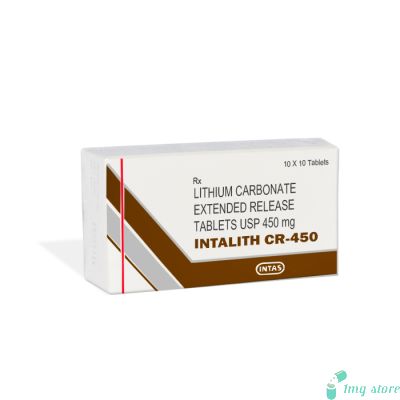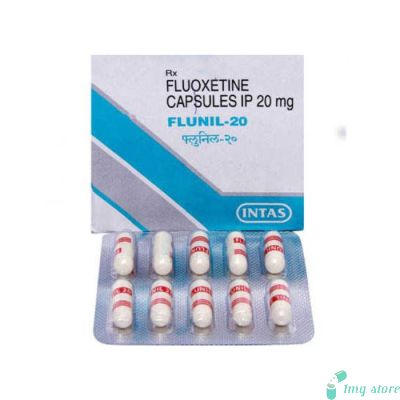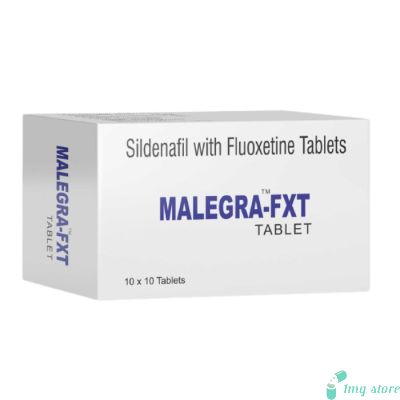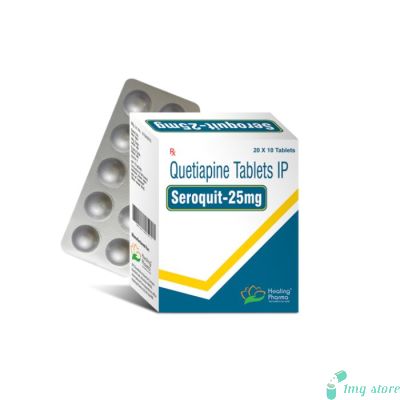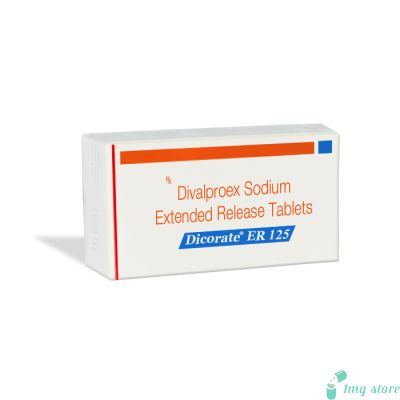Licab Tablet (Lithium Carbonate) is a medication commonly prescribed for the treatment of bipolar disorder, a mental health condition characterized by episodes of mania and depression. Lithium carbonate is the active ingredient in Licab Tablet, and it belongs to a class of medications called mood stabilizers.
The primary function of Licab Tablet is to help balance the levels of certain chemicals in the brain, specifically those involved in mood regulation. It is believed that lithium carbonate works by affecting the synthesis, release, and reuptake of neurotransmitters, which are the chemical messengers in the brain.
By stabilizing mood swings, Licab Tablet helps in reducing the severity and frequency of manic episodes, as well as preventing the recurrence of depressive episodes. It is often prescribed as a long-term treatment to manage bipolar disorder effectively.
Licab Tablet is available in tablet form and is usually taken orally with or without food. The dosage and frequency of administration are determined by a healthcare professional and depend on the individual's specific condition and response to the medication. It is important to follow the prescribed dosage and instructions provided by the healthcare provider.
Like any medication, Licab Tablet may cause certain side effects. Common side effects include gastrointestinal disturbances (such as nausea, vomiting, and diarrhea), increased thirst, increased urination, tremors, weight gain, and changes in thyroid function. It is essential to report any persistent or severe side effects to a healthcare professional.
Before starting Licab Tablet, it is crucial to inform the healthcare provider about any existing medical conditions, ongoing medications, and allergies, as well as provide a comprehensive medical history. Some medical conditions and medications may interact with lithium carbonate, so it is important to disclose this information for proper evaluation and dosage adjustment.
In conclusion, Licab Tablet (Lithium Carbonate) is a medication used for the management of bipolar disorder. It helps stabilize mood swings and prevent the recurrence of manic and depressive episodes. However, it is important to consult with a healthcare professional for proper diagnosis, dosage, and monitoring while using Licab Tablet.
Licab Tablet (Lithium Carbonate) offers several benefits for individuals with bipolar disorder. Here are some of the key advantages:
Mood Stabilization: Licab Tablet is primarily prescribed as a mood stabilizer. It helps to balance the neurotransmitters in the brain, which are responsible for regulating mood. By stabilizing mood swings, it can reduce the severity and frequency of both manic and depressive episodes.
Manic Episode Prevention: Licab Tablet is effective in preventing the occurrence of manic episodes in individuals with bipolar disorder. It helps to control and suppress the symptoms associated with mania, such as excessive energy, racing thoughts, irritability, and impulsivity.
Depressive Episode Prevention: In addition to managing mania, Licab Tablet also plays a role in preventing depressive episodes. It helps to alleviate symptoms of depression, including sadness, loss of interest, fatigue, and changes in sleep and appetite.
Long-Term Management: Licab Tablet is often prescribed as a long-term treatment option for bipolar disorder. It helps individuals maintain a stable mood and reduces the risk of relapse. By consistently taking Licab Tablet as prescribed, individuals can effectively manage their condition and improve their overall quality of life.
Combination Therapy: Licab Tablet can be used in combination with other medications or therapies for bipolar disorder. It may be prescribed alongside antidepressants, antipsychotics, or psychotherapy to provide comprehensive treatment and address different aspects of the condition.
Proven Efficacy: Licab Tablet has a long history of use and has been extensively studied for its efficacy in treating bipolar disorder. Many clinical trials and research studies have demonstrated its effectiveness in stabilizing mood and preventing relapse.
When taking Licab Tablet (Lithium Carbonate), it is important to follow certain precautions to ensure safe and effective use. Here are some precautions to keep in mind:
Medical History: Inform your healthcare provider about your complete medical history, including any existing medical conditions, especially kidney, heart, or thyroid problems. It is important to disclose any previous allergic reactions or sensitivities to medications as well.
Medication Interactions: Inform your healthcare provider about all the medications you are currently taking, including prescription drugs, over-the-counter medications, herbal supplements, and vitamins. Certain medications, such as diuretics, nonsteroidal anti-inflammatory drugs (NSAIDs), and anticonvulsants, can interact with Licab Tablet and affect its effectiveness or increase the risk of side effects.
Blood Tests: Regular blood tests may be required to monitor the levels of lithium in your blood. This helps to ensure that you are receiving the appropriate dosage for your condition. It is important to attend these tests as scheduled and follow up with your healthcare provider to discuss the results.
Hydration: Maintain adequate hydration while taking Licab Tablet. This is important because lithium can affect the body's water balance. Drink plenty of fluids, especially during hot weather or when engaging in strenuous activities, to prevent dehydration.
Sodium Intake: Be mindful of your sodium (salt) intake while taking Licab Tablet. High levels of sodium can affect the way your body handles lithium, potentially leading to toxicity. Follow your healthcare provider's instructions regarding dietary restrictions, especially if you are on a low-sodium diet.
Pregnancy and Breastfeeding: If you are pregnant, planning to become pregnant, or breastfeeding, it is crucial to discuss the risks and benefits of taking Licab Tablet with your healthcare provider. Lithium can potentially harm the fetus or pass into breast milk, so appropriate precautions and monitoring may be necessary.
Driving and Operating Machinery: Licab Tablet may cause drowsiness, dizziness, or impaired concentration in some individuals. If you experience these effects, avoid driving or operating machinery that requires alertness until you know how the medication affects you.
Alcohol and Caffeine: Limit or avoid the consumption of alcohol and caffeinated beverages while taking Licab Tablet. These substances can interact with the medication and affect its efficacy or increase the risk of side effects.
Overdose Risk: It is important to take Licab Tablet exactly as prescribed by your healthcare provider. Do not exceed the recommended dosage, as an overdose of lithium can be potentially dangerous. If you experience any symptoms of overdose, such as severe vomiting, diarrhea, tremors, confusion, or seizures, seek immediate medical attention.
Licab Tablet (Lithium Carbonate) has several uses in the field of medicine. Here are the main uses:
Bipolar Disorder: Licab Tablet is primarily used for the treatment of bipolar disorder. It is effective in stabilizing mood swings and reducing the frequency and severity of manic and depressive episodes. By helping to balance the chemicals in the brain, it aids in the long-term management of this condition.
Mania: Licab Tablet is beneficial in managing symptoms of mania associated with bipolar disorder. It helps control excessive energy, irritability, impulsivity, and racing thoughts, promoting a more stable mood.
Depressive Episodes: Licab Tablet is also used to prevent the recurrence of depressive episodes in bipolar disorder. It can help alleviate symptoms of depression, including sadness, loss of interest, fatigue, and changes in sleep and appetite.
Maintenance Treatment: Licab Tablet is commonly prescribed as a maintenance treatment for individuals with bipolar disorder. It is used to prevent relapses and maintain stability in mood over the long term.
Licab Tablet (Lithium Carbonate) may cause certain side effects. While not everyone experiences these side effects, it is important to be aware of them. Common side effects of Licab Tablet include:
Gastrointestinal Disturbances: Nausea, vomiting, and diarrhea are common side effects of Licab Tablet. Taking the medication with food or dividing the dosage throughout the day may help reduce these effects.
Increased Thirst and Urination: Licab Tablet can cause an increase in thirst and urination. It is important to stay adequately hydrated by drinking plenty of fluids, unless otherwise instructed by a healthcare professional.
Tremors: Some individuals may experience mild tremors or shaky hands while taking Licab Tablet. These tremors are usually benign and subside over time. If they become bothersome or severe, it is advisable to consult with a healthcare provider.
Weight Gain: Weight gain is a potential side effect of Licab Tablet. Monitoring your weight regularly and maintaining a healthy lifestyle with a balanced diet and regular exercise can help manage any weight changes.
Changes in Thyroid Function: Licab Tablet can affect the function of the thyroid gland, leading to changes in thyroid hormone levels. Regular monitoring of thyroid function may be necessary while taking this medication.
Q: What is Licab Tablet used for?
A: Licab Tablet is primarily used for the treatment of bipolar disorder. It helps stabilize mood swings, reducing the severity and frequency of manic and depressive episodes.
Q: How does Licab Tablet work?
A: Licab Tablet contains lithium carbonate, which helps balance the levels of certain chemicals in the brain that are involved in mood regulation. It is believed to affect the synthesis, release, and reuptake of neurotransmitters, thereby stabilizing mood.
Q: How long does it take for Licab Tablet to work?
A: The onset of action of Licab Tablet can vary from person to person. It may take several weeks for the medication to reach its full therapeutic effect. It is important to continue taking Licab Tablet as prescribed, even if immediate improvements are not seen.
Q: What is the recommended dosage of Licab Tablet?
A: The recommended dosage of Licab Tablet varies depending on the individual's condition and response to treatment. It is determined by a healthcare professional who will consider factors such as the severity of symptoms, medical history, and other medications being taken. Follow your healthcare provider's instructions and do not adjust the dosage without consulting them.
Q: What are the common side effects of Licab Tablet?
A: Common side effects of Licab Tablet may include gastrointestinal disturbances (nausea, vomiting, diarrhea), increased thirst, increased urination, tremors, weight gain, and changes in thyroid function. It is important to report any persistent or severe side effects to your healthcare provider.
Q: Can Licab Tablet be taken during pregnancy?
A: The use of Licab Tablet during pregnancy should be discussed with a healthcare provider. Lithium can potentially harm the fetus, especially during the first trimester. The decision to continue or discontinue Licab Tablet during pregnancy is made on a case-by-case basis, weighing the potential risks and benefits.
Q: Can Licab Tablet be taken while breastfeeding?
A: It is important to consult with a healthcare provider regarding the use of Licab Tablet while breastfeeding. Lithium can pass into breast milk and may affect the nursing infant. The healthcare provider will assess the risks and benefits and provide guidance based on the individual situation.
Q: Can Licab Tablet be stopped suddenly?
A: No, Licab Tablet should not be stopped suddenly without consulting a healthcare provider. Abruptly stopping the medication can lead to a recurrence of symptoms or withdrawal effects. The dosage should be gradually tapered under the supervision of a healthcare professional.
Q: Can Licab Tablet be taken with food?
A: Licab Tablet can be taken with or without food, as directed by the healthcare provider. However, it is generally recommended to take it with meals or a snack to minimize gastrointestinal side effects.
Q: Is it safe to drink alcohol while taking Licab Tablet?
A: It is generally recommended to limit or avoid alcohol consumption while taking Licab Tablet. Alcohol can interact with the medication and may increase the risk of side effects or affect its effectiveness.
Here are some common drug interactions to be aware of:
Diuretics: Diuretics, also known as water pills, can increase the amount of lithium in the body by reducing its excretion through urine. This can potentially lead to lithium toxicity. It is important to inform your healthcare provider if you are taking diuretics or if diuretics are prescribed to you while on Licab Tablet.
Nonsteroidal Anti-Inflammatory Drugs (NSAIDs): NSAIDs, such as ibuprofen, naproxen, and aspirin, can affect how the body handles lithium. They can increase lithium levels in the blood, potentially leading to lithium toxicity. Your healthcare provider may recommend alternatives or adjust the dosage of Licab Tablet if you need to take NSAIDs for pain relief or inflammation.
Anticonvulsant Medications: Some anticonvulsant medications, such as carbamazepine and valproic acid, can interact with lithium and affect its levels in the body. Your healthcare provider may need to monitor your lithium levels closely and adjust the dosage accordingly if you are taking anticonvulsants.
Antidepressant Medications: Certain antidepressant medications, such as selective serotonin reuptake inhibitors (SSRIs) and serotonin-norepinephrine reuptake inhibitors (SNRIs), may increase the risk of serotonin syndrome when taken with Licab Tablet. Serotonin syndrome is a potentially serious condition characterized by symptoms like confusion, rapid heart rate, fever, and muscle stiffness. Your healthcare provider will carefully monitor your symptoms if you are prescribed both antidepressants and Licab Tablet.
ACE Inhibitors and Angiotensin II Receptor Blockers (ARBs): Some blood pressure medications, including ACE inhibitors and ARBs, can increase the levels of lithium in the blood. Your healthcare provider may need to adjust the dosage of Licab Tablet or monitor your lithium levels more closely if you are taking these medications.
Methyldopa: Methyldopa, a medication used to treat high blood pressure, can decrease the effectiveness of Licab Tablet. Your healthcare provider may consider alternative treatment options or adjust the dosage of Licab Tablet if you are taking methyldopa.
Caffeine: Caffeine can affect the levels of lithium in the body. It is generally recommended to limit or avoid excessive caffeine intake while taking Licab Tablet. Discuss your caffeine consumption with your healthcare provider for personalized guidance.
| Manufacturer | : | Torrent Pharma, India |
| Equivalent Brand | : | |
| Generic Search | : | Lithium Carbonate |









